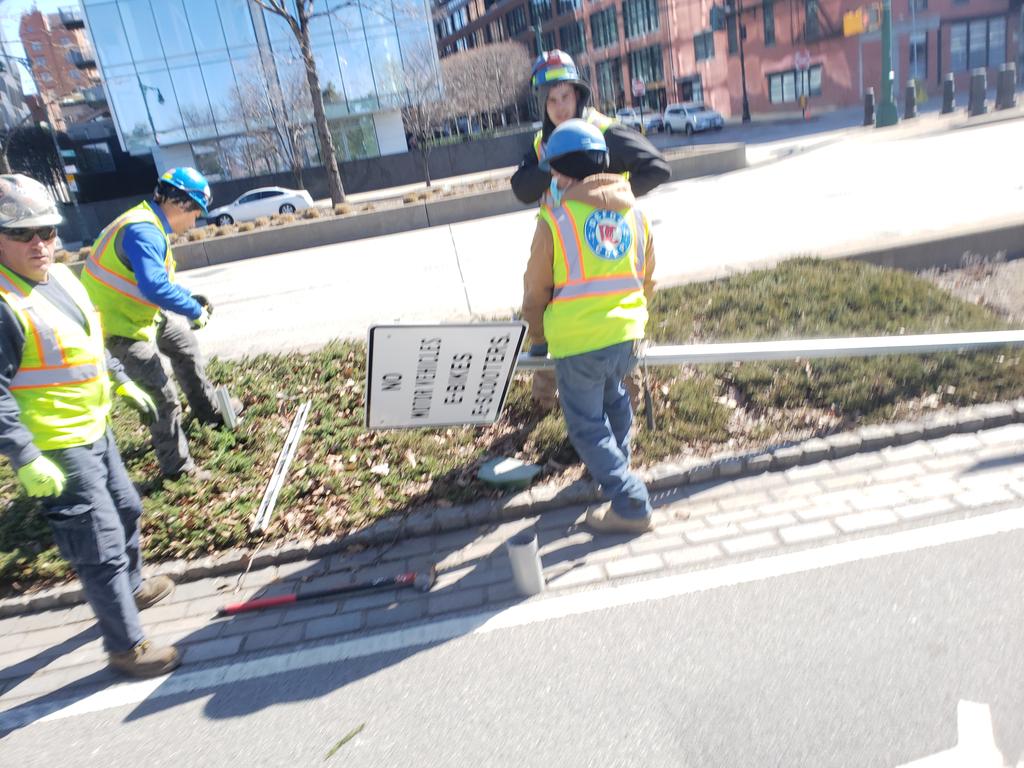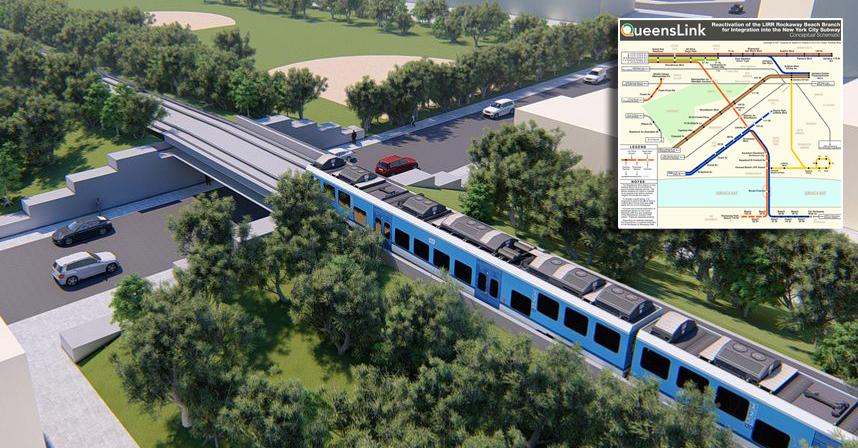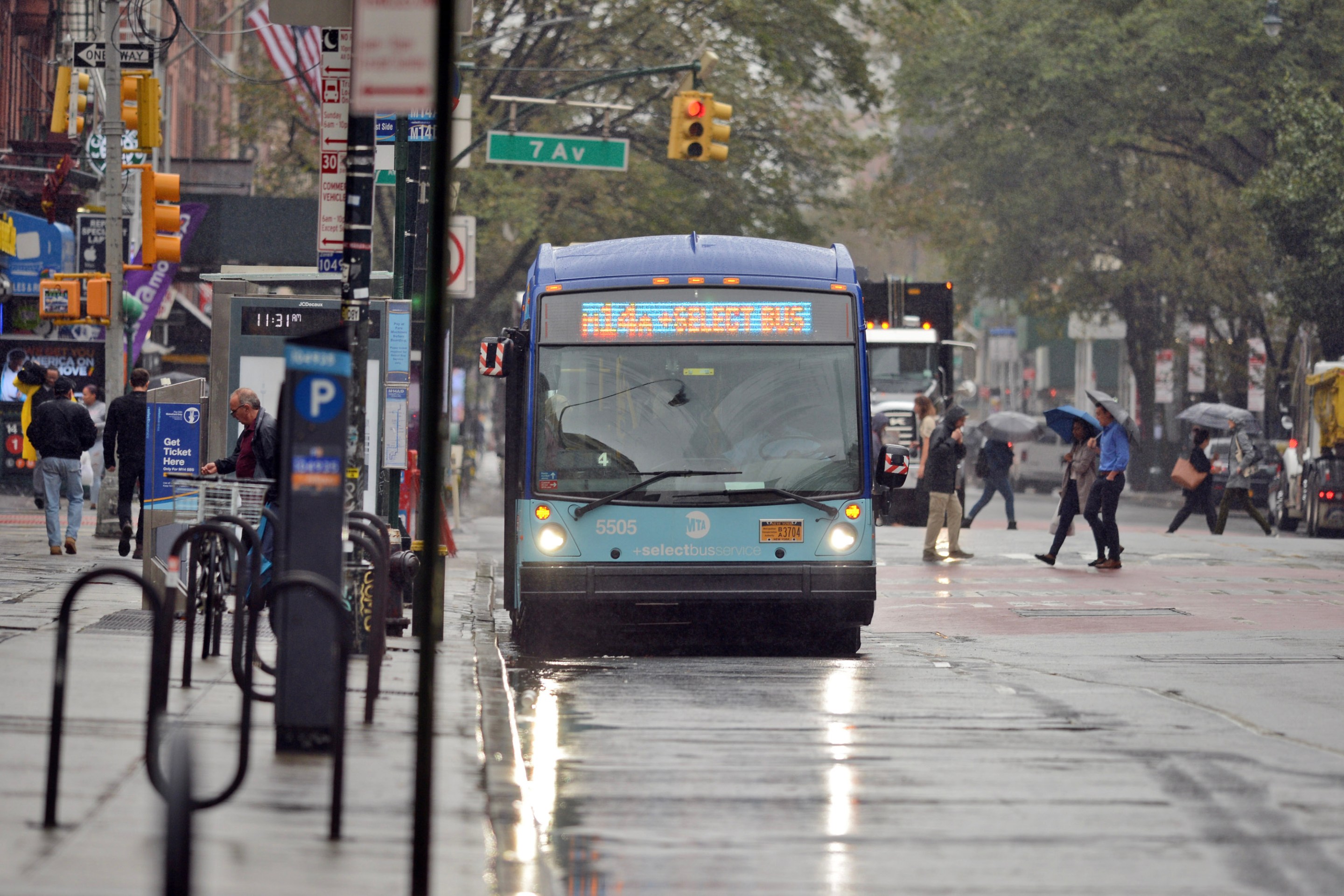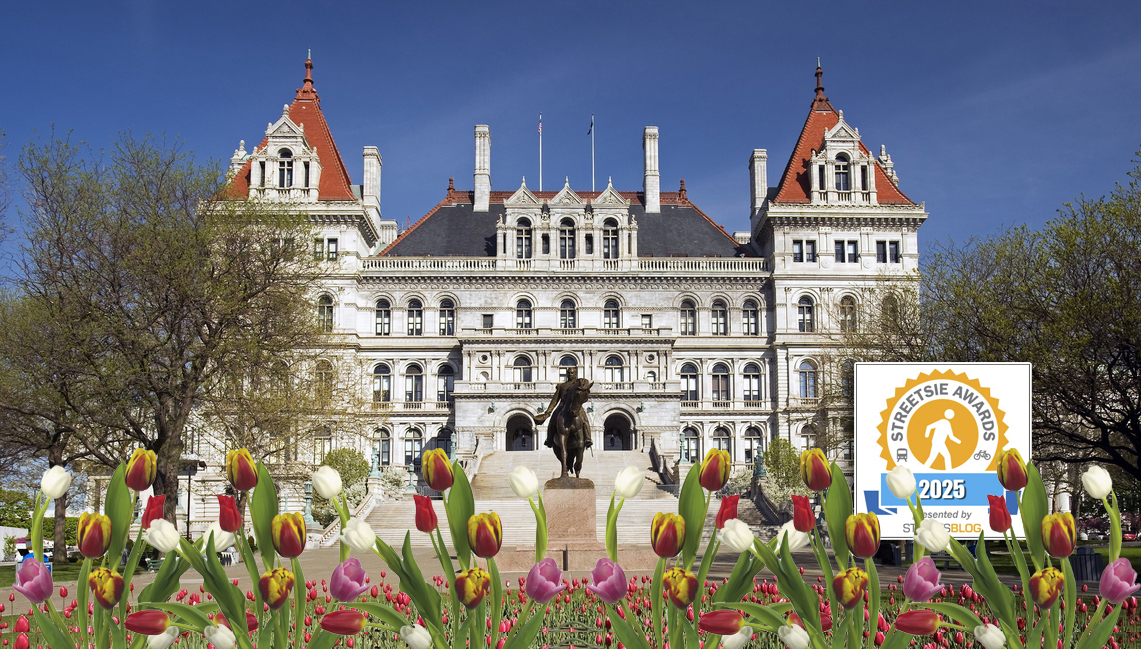E-bike and e-scooter riders are getting another reminder that they're supposed to stay off the Hudson River Greenway even though their rides are street legal, a situation that has workers and advocates fuming.
Attorney Steve Vaccaro spotted signs that read, "NO MOTOR VEHICLES E-BIKES E-SCOOTERS" going up the other day on the greenway, signaling a new step in the ban that was included in the legislation that legalized e-bikes and e-scooters last year.
These signs went up this morning on the NYS portion of the West Side bike path (below 59th Street). pic.twitter.com/I9KACplUUA
— Steve Vaccaro (@BicyclesOnly) March 9, 2021
The posted signs are a reminder that even though New York State finally legalized e-bikes in 2020, lobbying from well-connected interests managed to keep promoting the idea that e-bikes were somehow exceedingly dangerous, despite a lack of evidence for the claim. The lobbying push to ban e-bikes and e-scooters was a holdover from the previous year's e-bike legislation, when State Sens. Liz Krueger and Brad Hoylman reportedly took up the cause on behalf of the Hudson River Park Friends, whose executive director testified in favor of a ban based on a meritless insistence that e-bikes were too dangerous for the congested pedestrian/bike path.
Since the legalization and greenway carveout, the Hudson River Park Trust has demanded that the NYPD start ticketing e-bike riders on the path, even as many well-to-do liberals passed resolutions condemning heavy-handed police enforcement that impacts Black and brown New Yorkers. None of the HRPT's discussions around police enforcement on the greenway have ever featured the voices of the workers who use the bike lane, though if they had, the trust members would have learned a thing or two.
"I didn't even know it was illegal for me to use it," said Gustavo Ajche of Los Deliveristas Unidos, a delivery cyclist collective fighting for more rights for the workers. "But I have used it and it's essential for us to use it because it is a way to deliver food faster."
The greenway as an option to allow workers to do their jobs up to customer and app company expectation is one thing, but advocates for delivery riders also pointed out that a space for bikes also keeps the riders safe.
"The Hudson River Greenway has been one of the ways where workers have been able to deliver food from one neighborhood to another one, travel safely and not go through high traffic or dangerous streets," said Ligia Guallpa, the executive director of the Worker's Justice Project.
And that safety aspect is particularly important as the combination of the pandemic and the explosive growth in delivery apps has stretched the boundaries of where deliveristas are expected to travel from one delivery to another, Ajche said, which means a ban would rob the workers of a vital lifeline.
"We use it to travel from one neighborhood to another one. Because sometimes these days, we have to travel long distances. Sometimes I'll be downtown and I have to deliver food all the way to Midtown. So we use it as a way to go from neighborhood to neighborhood to be delivering food," he said.
This ban also extends to Class 1 (pedal assist e-bikes that include Citi Bike electrics) and Class 2 (throttle bikes topping out at 20 miles per hour) e-bikes, according to Transportation Alternatives Deputy Director Marco Conner DiAquoi, a ludicrous rule akin to banning cars on a road if the car can exceed the posted speed limit (which they all can and all do).
"We don't need this when it comes to sustainable micromobility, for which there's no data to support the notion that e-bikes or e-scooter are more dangerous," he said. "We need to break down all barriers towards the use of e-bikes in particular."
Environmental advocates, who just gave out grades commending lawmakers for working to legalize e-bikes and e-scooters, joined the push to allow the transportation options on the greenway.
"E-bikes and e-scooters are low-emission modes of transportation that help slash emissions and improve air quality," said Julie Tighe, the president of the New York League of Conservation Voters. "It is crucial that we make them accessible to families across the city, especially in safe travel corridors like the Hudson River Greenway. We encourage stakeholders to work together to clarify the use of this space for micromobility options like e-bikes and e-scooters."
Conner DiAquoi also pointed out that while the city is supporting State Sen. Jessica Ramos's bill to change the size of a cargo e-bike, he said the de Blasio administration never lifted a finger to deal with the greenway ban and continues to fail on the issue.
"The city is going out of its way to change the definition of the law to accommodate multinational corporations, but it's not lifting a finger to ensure that delivery workers and other New Yorkers aren't subject to additional enforcement. And not helping to keep the integrity of the full use of public transportation in the form of Citi Bike e-bikes speaks volumes of the mayor," he said.
The famously SUV-reliant mayor also has never had his actual dangerous mode of transportation challenged by the state.
"If the state imposed a weight limit on SUVs that then banned the way the mayor drives to his gym in Park Slope, he would have cried foul," Conner DiAquoi said.
Guallupa and Conner DiAquoi both said they hadn't heard of any particular enforcement crackdown on e-bike riders yet, but if street signs are going up, enforcement could be coming afterwards.
There's one solution on the table to fix the the problem of the greenway's width by extending the bike lane into one lane of traffic on the West Side Highway, but so far the state DOT has not shown any interest in doing that. In the mean time, City Council members who previously promised action on the issue are once again promising action.
"Having access to any greenway or bike lane area should not be exclusive to any particular group," said Council Member Ydanis Rodriguez, chairman of the Transportation Committee. "They belong to all New Yorkers and should be open for all to use, safely and responsibly. Delivery workers are essential to our City, during the height of the pandemic they did not have the luxury of working from home. Many New Yorkers relied on delivery workers for their food deliveries when indoor dining was closed. I am hoping to work with the DOT to explore the possibility of replacing the new signs on the Hudson River Greenway with ones limiting the speed limit of e-bikes instead of placing a blanket ban."
The Hudson River Park Trust and City Hall did not respond to requests for comment.






